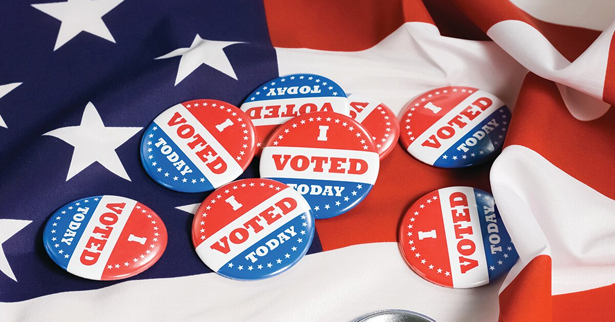
Open Primaries?
It's more complicated than you think.
September 18, 2023
Pennsylvania' last five governors have publicly called for an end to the state's closed primary system which only allows major party-affiliated voters to cast ballots for candidates during primary elections. They argue that the 1.2 million voters in the Commonwealth not affiliated with a major party on their voter registration are being unfairly locked out of an important stage of our electoral process.
While this appears to be an easy way to change Pennsylvania's elections for the better, the reality is far more complicated. It should also be noted that I do not recall any of those five governors championing open primaries when they were running for or serving in office.
How Would It Work?
If the General Assembly were to simply change the law to allow independents to vote in primary elections, how would that actually work? Would independents simply show up at the polling place on Election Day and proclaim a desire to vote in the Republican or Democrat primary? Or could they choose to vote Republican in some races and Democrat in other races on the ballot that day?
If the former, how would that be fair to registered Republicans and Democrats who would not be able to make a similar choice? And if the latter, how would that work in counties where paper ballots are printed ahead of time?
Party Committee Seats
It should also be noted that in even-numbered years, primary election voters also elect local members of county and state party committees. Should independent voters have a say in those elections as well? I asked this question of two former state party chairmen who support open primaries at a House State Government Committee hearing a couple years ago, and their reply was that they hadn't even considered it.
These party elections, and primary nominating contests themselves, were originally created to bring party committees and nominations out from behind closed doors where party bosses ruled with an iron fist from smoke-filled rooms. This made these party functions more responsive to the will of party voters, but allowing independents to participate seems unfair to registered Republicans and Democrats.
Since these party offices appear on the primary election ballot, allowing independents to vote in primaries would either allow them to participate in those party committee elections or require counties to double the amount of unique ballots at each precinct, if independents are allowed to vote for candidates but not for party officeholders.
Double the Ballots, Double the Mistakes
Here in Lebanon County, our 60 voting precincts require the Board of Elections to produce 120 separate unique ballots for every primary election. If we'd need to accommodate independents who could vote for candidates but not party committee positions, the Board would need to produce 240 separate ballots.
Every year there are instances of proofreading or other human errors that complicate the election process. Producing twice the amount of separate unique ballots would only double the chance of such errors occurring.
It's Complicated
Allowing independent voters to participate in primary elections is more complicated than just claiming they should be allowed to vote in what are currently internal party functions made public for transparency purposes. And there are more issues to consider, such as how open primaries would impact presidential contests, whether to include voters registered with minor or third parties, and whether to allow independent candidates to run in primaries.
Every Pennsylvania voter already has the right and ability to vote in primary elections, as political affiliation is not a permanent fixture. Under current law, all voters can switch their affiliation as late as 15 days before any primary election in order to participate in the primary election of their choice. One can switch their affiliation as often as they like, and it's FREE.
Open primaries may or may not be an idea worth discussion but as with any other idea, the General Assembly needs to consider all the ramifications and seek public input before rushing to change the law.







